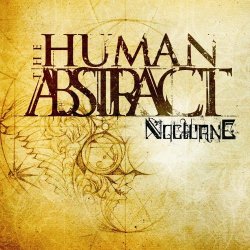
From smaller club shows to packed Warped Tour sets, Bayside cultivates a relationship with the audience it has come to seductively serenade. The new album, Shudder, was recorded with the live show in mind. The members don’t shy away from mingling with the crowds at shows or being available by their merch setup for photos and conversations. They even maintain an active presence on their MySpace: reading and responding to the messages that pour in to their electronic home on the web. Bayside is nothing short than interactive and they take care to nurture the relationship with their fans; a relationship that uses music as a positive influence.
The band members draw on each other’s creativity to be inspired and influenced during the writing processes. Nick Ghanbarian, the bassist for the band says that he is “just really influenced by the people in [his] band at this point.” Those people would be Anthony Raneri, fronting the band as lead vocalist and rhythm guitarist; Jack O’Shea standing his ground on lead guitar and the occasional back-up vocals; and Chris Guglielmo keeping the beat on drums. Aside from his makeshift musical family, Nick receives his inspiration from “people that make [him] want to be creative on a daily basis. Musician-wise that would be people like Ben Folds or Jenny Lewis.”
Music is something that Nick had to find on his own rather than through his parents or friends - the mainstream point for one’s musical exploration: either from records strewn about the house or from a mix tape that a friend slipped in your hand between classes. So Nick found music on his own. At the age of thirteen and fourteen the bands that were pounding their tunes into his eager ears included Green Day, Bad Religion, and other bands exploding the airwaves at that point in time. It was this music that convinced the youngster that picking up an instrument was a necessary action. At first, Nick found that “at a younger age it alienated me until [he] found the local scene, but ever since then it’s just made [him] an open minded person and very creative at all points of the day.” His interest in music didn’t marginalize him for long and became his “motivation to basically get up every day and try to accomplish something. Using music as a positive influence is something awesome. It could be background music to you or it can be something that you live and die by…But to find music that really speaks to you and is a part of your everyday life is the best part about it.”
So much of today’s music that kids are gathering to listen to lacks depth and simply hides behind “the guise of a scene band because that is what has become popular over the years.” Whether the bands are put together by major labels or the members are brought together looking for fame and popularity, they lack the skills and drive to write their own music. “It’s unfortunate but you kind of have to take it for what it’s worth. People are living and dying by Boys Like Girls lyrics and that’s unfortunate, but at the same time there are real bands out there.” Bayside, not surprisingly, is one of those real bands. One that takes the time to make meaningful music incorporating lyrics that they can actually relate to and that they hope their audience can relate to as well. It’s a conscious effort to be a real band, to be “Bad Religion rather than the aforementioned band.” One that pays off as other bands burn out and fade away, leaving Bayside still hosting massive sing-alongs at venues across the map.
The songs start with Anthony, who is the primary songwriter in the band. His melodic mind, acoustic guitar, and Garageband - equipped Apple computer lays the skeletal spine of the song and then the song is “actually talked about a lot, if not more than [Bayside] actually plays the song.” This latest record was always in the works beforehand, but the band as a whole didn’t get together to review and fully form the pieces until six weeks before heading to the studio. “A week to ten days of pre-production and six weeks in LA to record everything” and the result is a record with which the band feels content. Nick says proudly that the guys are “happy with every part on the record, which is a first time… And the performances on the album are really something; they’re not too far off from a live.” The energy that is present in a live show is present on the album. The audience has no time to wonder what has happened to the band between the steps from studio to stage; they are too enraptured by the charismatic presence that is Bayside.
The result being a band that hits the road day after day, week after week, month after month, connecting with their fans and giving them the gift of music with heart. Bayside and company give up seeing their homes, their families, their significant others to “play shows and meet people.” They want you to say hello. They want you to take a picture with them. They want you to be involved. Don’t let them down.





